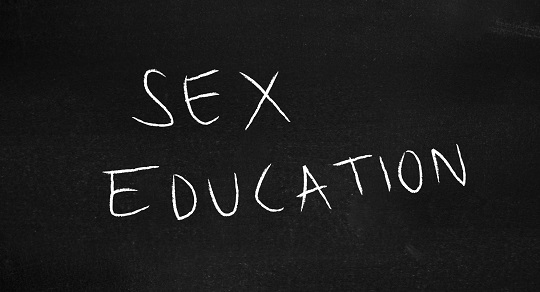As the sex education consultation begins, here’s why we’re asking for #sexedforall

Sex education
We all remember how painstakingly awful our sex education was.
For a lot of us, we were lucky if our teacher mentioned the word sex at all.
And the thought of sex that didn’t involve a penis entering a vagina? Simply unthinkable.
It’s not just the fact that the tropes of stuffing bananas into condoms and blushing teachers ring true in pretty much everyone’s sex education education – it’s the fact that across the generations, the same issues still remain the same.
Sex and relationships education (SRE) has not been updated in the past twenty years.
And that’s we think that it is nothing short of essential that the government’s eight-week consultation into updating SRE education needs to include #sexedforall.

The consultation will ask parents and young people for their opinions in an eight-week call on what content should be covered in their sec education – and the research needs as many voices behind it as possible ensuring that LGBT voices are heard.
Members of the public can register their thoughts by completing the survey here, and have the ability to transform the country’s embarrassingly lacking sex and relationships education for good.
As a former pupil of a Catholic school, I know all too well how dire the consequences of a bad sex education can be – even more so when you’re gay.
When the only form of sex discussed, or should I say alluded to, is straight PiV, you know that the system has a big LGBT problem.
With such a limited worldview of what sex is, the adults of tomorrow will be left unable to navigate, appreciate and understand their bodies and the bodies of other people in the way that they deserve.
They can often feel ashamed not to be considered in the current curriculum’s narrow understanding of what is normal, and those impressions can deeply affect their adult lives.
In fact, according to Stonewall, there is no mention of lesbian, gay, bisexual or transgender people in current sex and relationships education.
And that vagueness, that secrecy, and that complicit hostility can affect the way LGBT people perceive and relate to their sexuality for the rest of their lives.
At the moment, just 13% of LGBT people feel like they received an appropriate sex education at school.
Considering that the Treasury’s estimate is that gay or lesbian people make up 6% of the population, amounting to 3.6 million people, that’s a lot of people being left in the dark.
Nearly 45% of of lesbian, gay, bi and trans young people are bullied for being LGBT at school, and for 40% of them, their identity or orientation is not discussed at school altogether. And when these absences occur, issues around consent and sexual violence become starkly apparent.
When the number of reported sexual offences by under-18s against other under-18s in England and Wales rose by 71% from 4,603 in 2013-14 to 7,866 in 2016-17, it is clear that we need a solution to this pressing issue.
That doesn’t leave just 77% of LGBT people frustrated, but that lack of conversation suggests that there is something dubious, something that deserves to be hidden, about queer sex lives.
This isn’t just about sexuality, it’s about identity too. As non-binary genders are entering the spotlight, and the ever-increasing awareness of trans rights and gender identities comes into conversation, it is essential that we direct these conversations in a way that is progressive, inclusive and helpful.
For the likes of asexual people who face further frustrations with conveying their identity, SRE can feel even more frustratingly dislocated and accessible.
We’ve been having sex since the dawn of time, but we still don’t know how to tell people about it.
And the sooner we bring an informative, non-judgemental progressive agenda that treats all sexualities and genders equally, the better our children, teenagers and adults will be for it, and when the time comes, the better their sex lives will be for it too.

